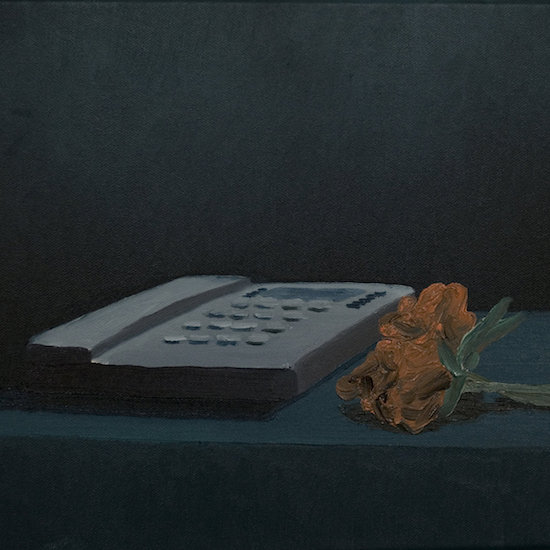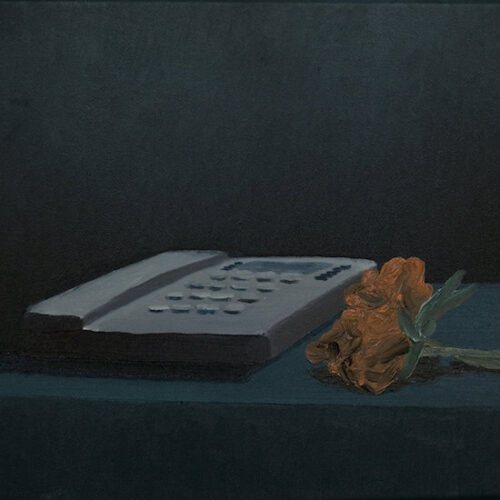I’ll admit that for years I was utterly perplexed by Leyland Kirby aka The Caretaker aka V/VM (and so on). I once saw him play live, rolling around on the floor and singing along to pop hits, like St Vitus karaoke. No matter how much people might have told me of the brilliance, I struggled to understand what he was about – this, it transpires, was my loss. It was my Quietus co-pilot John Doran’s interview with Kirby last year that changed it all. One of my favourite articles we’ve run on the site, the sport of darts suddenly opening up Kirby’s rare, wonderful world for me. I felt like a fool for having neglected it for so long. If all the critical quacking on about hauntology etc had fogged things for me previously, that cleared in the face of the profound emotional hit of his music, especially in The Caretaker’s final Everywhere At The End Of Time dementia series of albums, or the ribald piss-taking of po-faced peers with V/VM’s Mrs Mills’ Piano.
Indeed, this new album, given away for free on Bandcamp yesterday (accompanying Everywhere At The End…‘s imminent third instalment – buy from our Norman here), comes accompanied by a beautifully-put and direct piece of text on Kirby’s motivations for doing what he does. "It’s not free because I place no value on this work. It’s free because I mean it," he writes. The full text (on the Bandcamp page) is the antithesis to the pseudo-academic art speak PR guff that accompanies so much electronic music these days – a practice my learned pal Uncle Music off Twitter calls “CV inflation”. Similarly We, So Tired Of All The Darkness In Our Lives for all its 16 tracks of languid, wandering piano, electronics, drums like eyelids fluttering off into a doze is a strange, instantly overwhelming and moving listen that fits its title. It has, even in the past day, managed to alter my head drastically at a particularly troubling time. However hazy this music might superficially be, there’s a powerful undertow of emotion and integrity the likes of which one tends to hear these days only around the fringes. I can’t think of another record that has moved me so quickly, and unexpectedly, this year. That it’s a free download and self-released says much about the tech-obsessed, ironic, mainstream-indebted cynicism of a lot of supposedly leftfield electronic music right now.
Apparently put together from Kirby’s prodigious archive of tracks, lurking in his Krakow HQ, it’s like an assemblage of all the best moments of album interlude music you’ve ever heard drunk, wept over, grieving and bleakly euphoric, like rolling over onto the other side of a bed still warm from a lover just departed for good. I’ve always admired and been drawn to music that can at one moment give a great sense of unease and the next act as balm, and Kirby has that down pat in this emotionally generous album. The melancholia of the sonics contrasts with the twisted wit of titles ‘Rotten Rave Tropes’, ‘Clickbait’ and ‘Sickly Strawberry Nostalgia’, amusing yet gothic juxtaposition echoed in the cover’s still life of old 90s phone and a grubby cut bloom.
Like all the greatest artists, Kirby is able to deploy maximum humour while taking things very seriously indeed and without being, well, a smug twat. Praise be upon him. "These days it feels like it’s at an all time low for positive outcomes," Kirby writes on the Bandcamp "sleevenotes". That’s as maybe, but it’s records like this and the generosity of spirit of the likes of Kirby that’ll help us through this rum age.



